Drinking This Can Help With Anxiety and Depression
Feeling anxious and depressed? You’re not alone. In March 2022, the Harris Poll conducted its annual “Stress in America” survey and found that a large majority of Americans are deeply stressed out. The reasons cited? The crisis in Ukraine is causing global uncertainty, financial worries are at their highest since 2015, and COVID continues to cause mental distress, with 63 percent of adults saying the pandemic has forever altered their lives. The stressors keeping us awake seem endless, but fortunately, we’re learning more and more about the things we can do to counter our anxiety and depression. Read on to find out why choosing to drink one type of beverage in particular can actually decrease your stress.
RELATED: If This Happens When You Drink Alcohol, It Might Be Time to Stop.
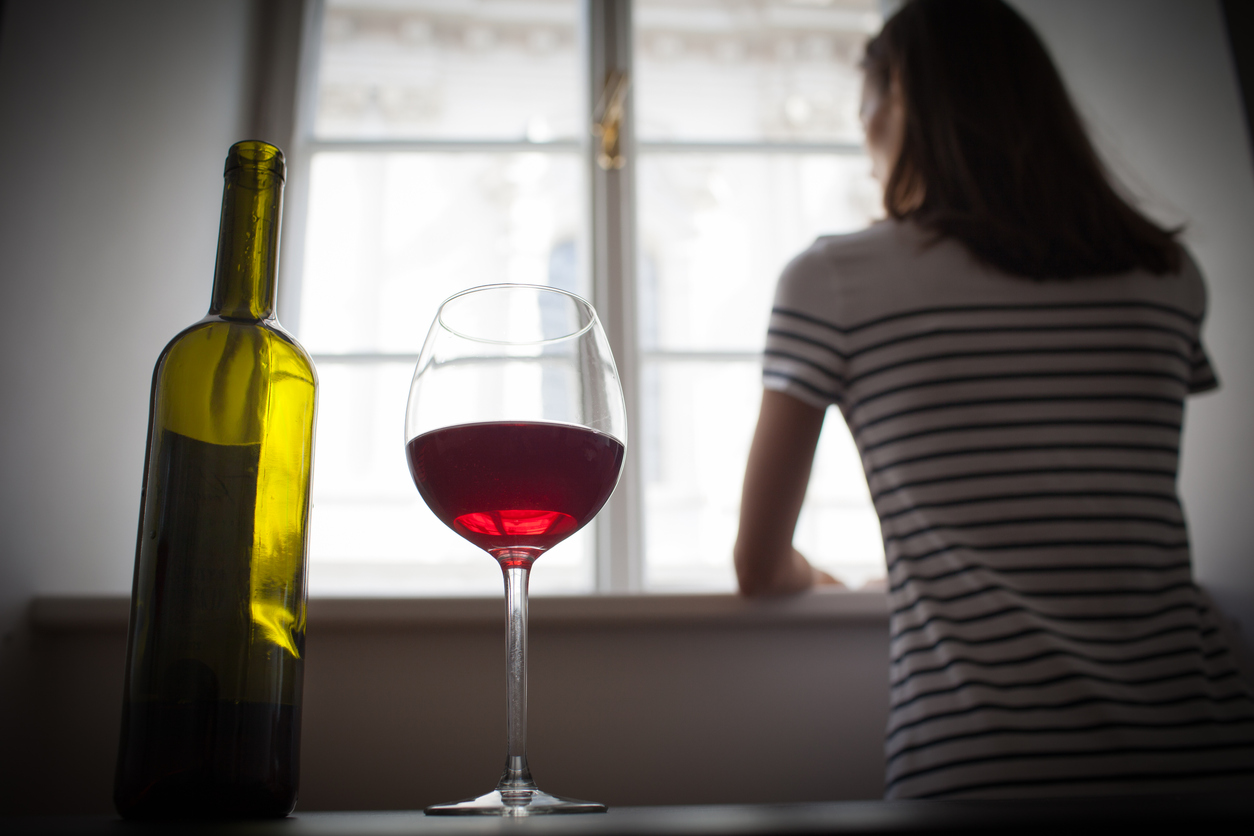
“People who drink often tend to experience anxiety or depression because the hormones in your brain are affected by your alcohol intake,” explains Brooke Scheller, Doctor of Clinical Nutrition and Certified Nutrition Specialist. “When you drink, you get a rush of the ‘feel good’ hormones serotonin and dopamine.”
This rush improves your mood, she explains, but here’s the twist—other brain chemicals are being affected as well, specifically the ones that can actually intensify anxiety and depression. People may continue to drink alcohol because of the “good” feelings, intending to try to relax and “take the edge off,” but they are actually doing the opposite. Trying to undo this effect then creates a worsening cycle. That’s why the next time you’re reaching for a drink, you may want to make it a mocktail instead of a cocktail.
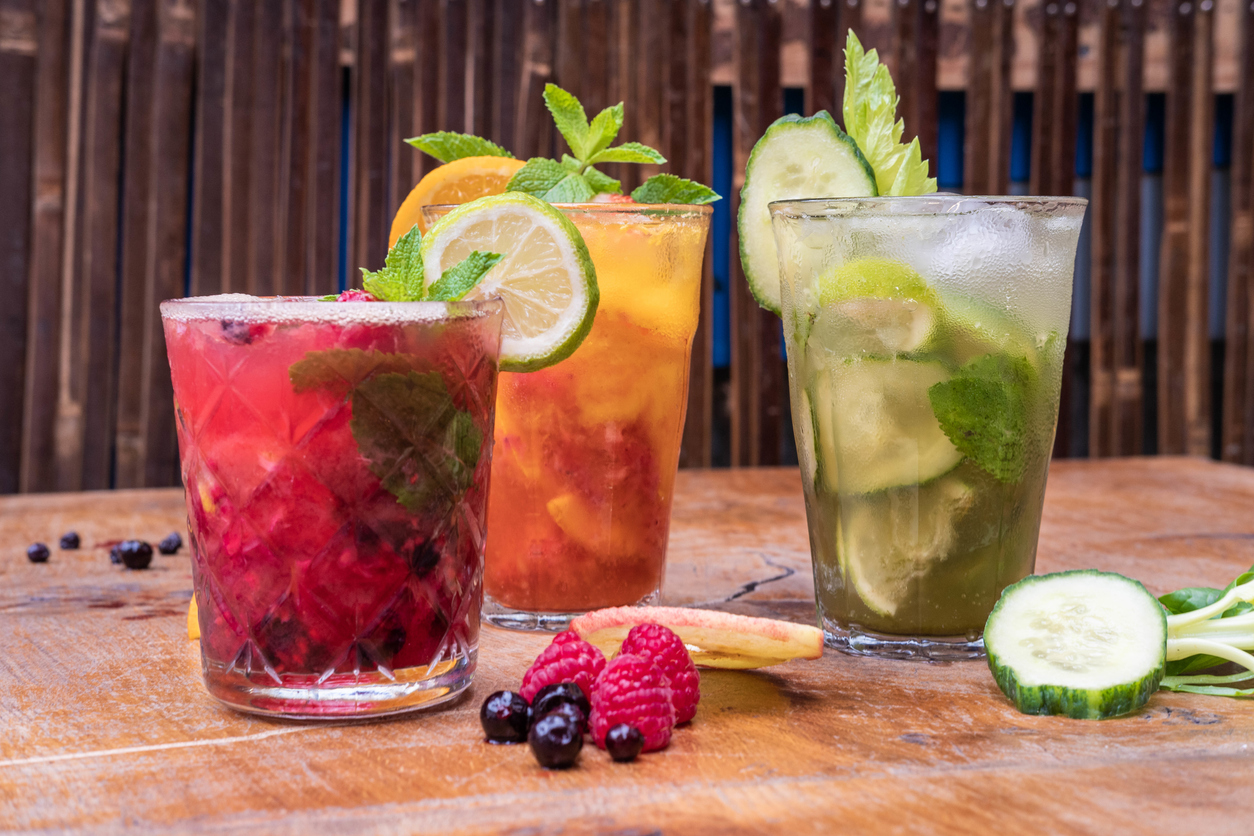
The brain suffers from alcohol intake in more ways than one; one study shows that even just having one drink a day can actually shrink brain matter. So if you’re out and looking to enjoy a beverage, you may want to opt for something non-alcoholic. Fortunately, the rise in mocktail enthusiasm means that you won’t be limited to a boring juice and seltzer mix, or—even worse—relegated to a bland soft drink while your companion sips a frosty pink confection adorned with grated lemon peel and a basil leaf.
There are tons of great mocktail recipes to try at home. Choosing a non-alcoholic beverage also means you won’t suffer the uncomfortable symptoms of a hangover, such as nausea, headache, and dry mouth.
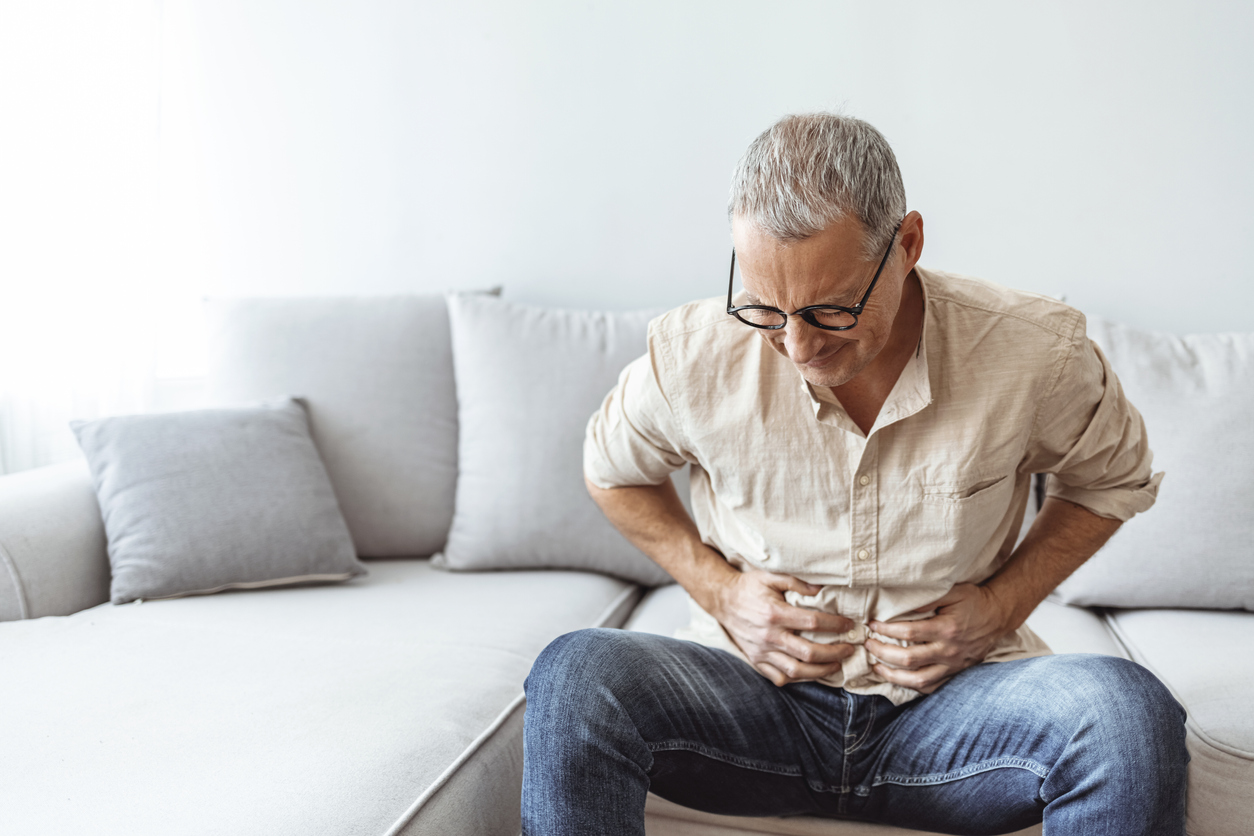
Mental wellness isn’t the only important aspect of your health that’s affected by alcohol intake. In addition to affecting your heart, blood pressure, and muscles, the digestive system is extremely impacted by alcohol—which puts your essential gut health at risk. “When we drink alcohol on a regular basis, it changes how we digest and absorb food,” Scheller explains.”Regular alcohol consumption messes with the body’s ability to create stomach acid and digestive enzymes, which decreases our ability to absorb certain nutrients.”
The liver is affected as well, Scheller says. “When our liver isn’t functioning properly, excess hormones aren’t being processed—often, we see estrogen increase when the liver isn’t functioning properly because the body doesn’t have a way to process excess hormones.”
In addition, she notes that regular alcohol intake can lead to acid reflux, bloating, and constipation: “The gut is where many of your hormones are made, so an imbalanced gut can lead to autoimmune diseases and food sensitivities.”
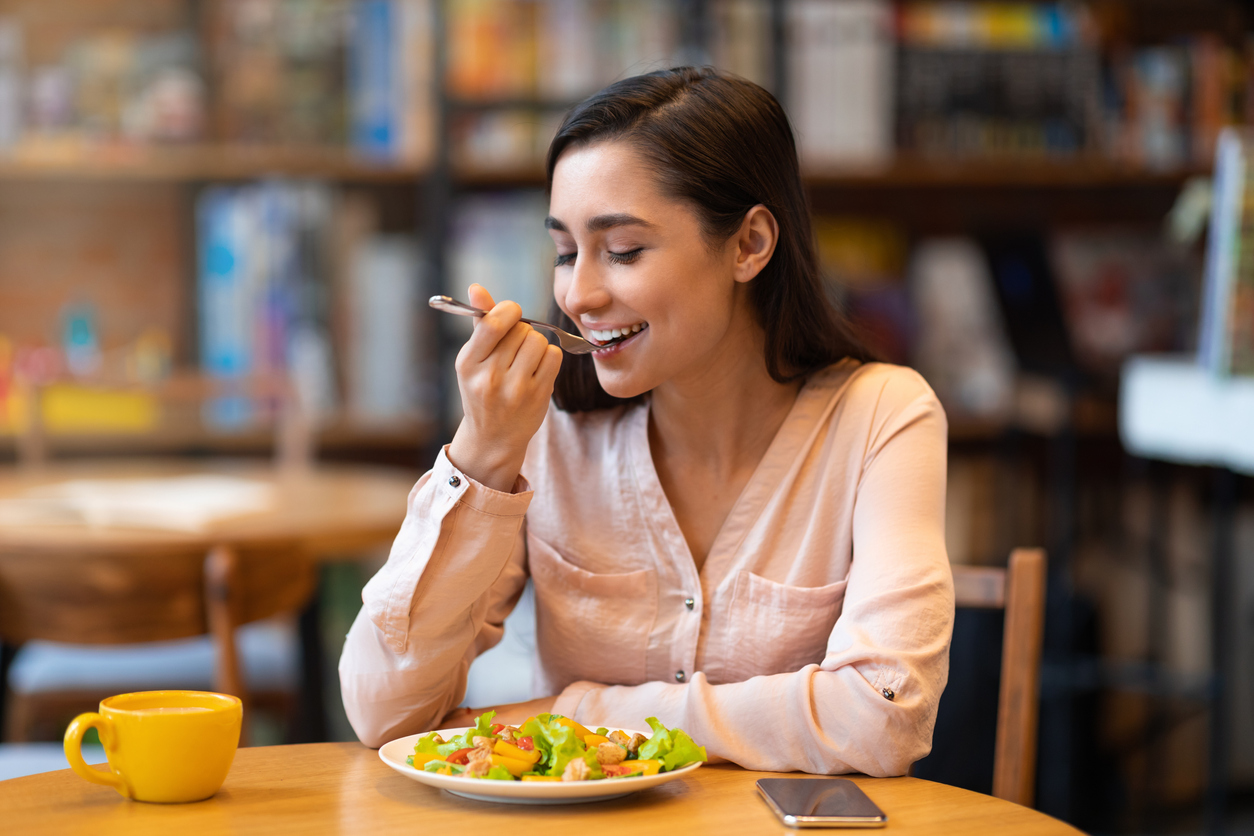
When you’re craving alcohol—whether it’s to relax or to alleviate depression—there are other things you can do to satisfy the urge. And in fact, it’s important to note that the more alcohol you drink, the more you may crave.
“Drinking on a regular basis creates imbalances in your gut and allows the bad bacteria to grow out of control,” Scheller says. “This can trigger cravings for sugar and alcohol, because bad bacteria feed on these sugars.”
Taking probiotics can be helpful for this kind of imbalance, as can sticking to a healthy diet that includes plenty of protein. “I always recommend consuming 15-25 grams of protein at each meal and snack to help stabilize blood sugar, and to never eat carbohydrates or sugar alone,” says Scheller. For a “quick fix,” she recommends adding protein to your meal.
Finally, Scheller recommends exploring ways to have fun that don’t involve drinking: “Grabbing a cup of coffee or a juice, getting an ice cream cone or a dessert, going for a walk, or doing something creative like visiting an art museum or taking a painting class,” are all great ways to de-stress without alcohol, she says.
RELATED: Drinking Any of This Popular Beverage Hurts Your Heart, New Study Finds.
" Conservative News Daily does not always share or support the views and opinions expressed here; they are just those of the writer."

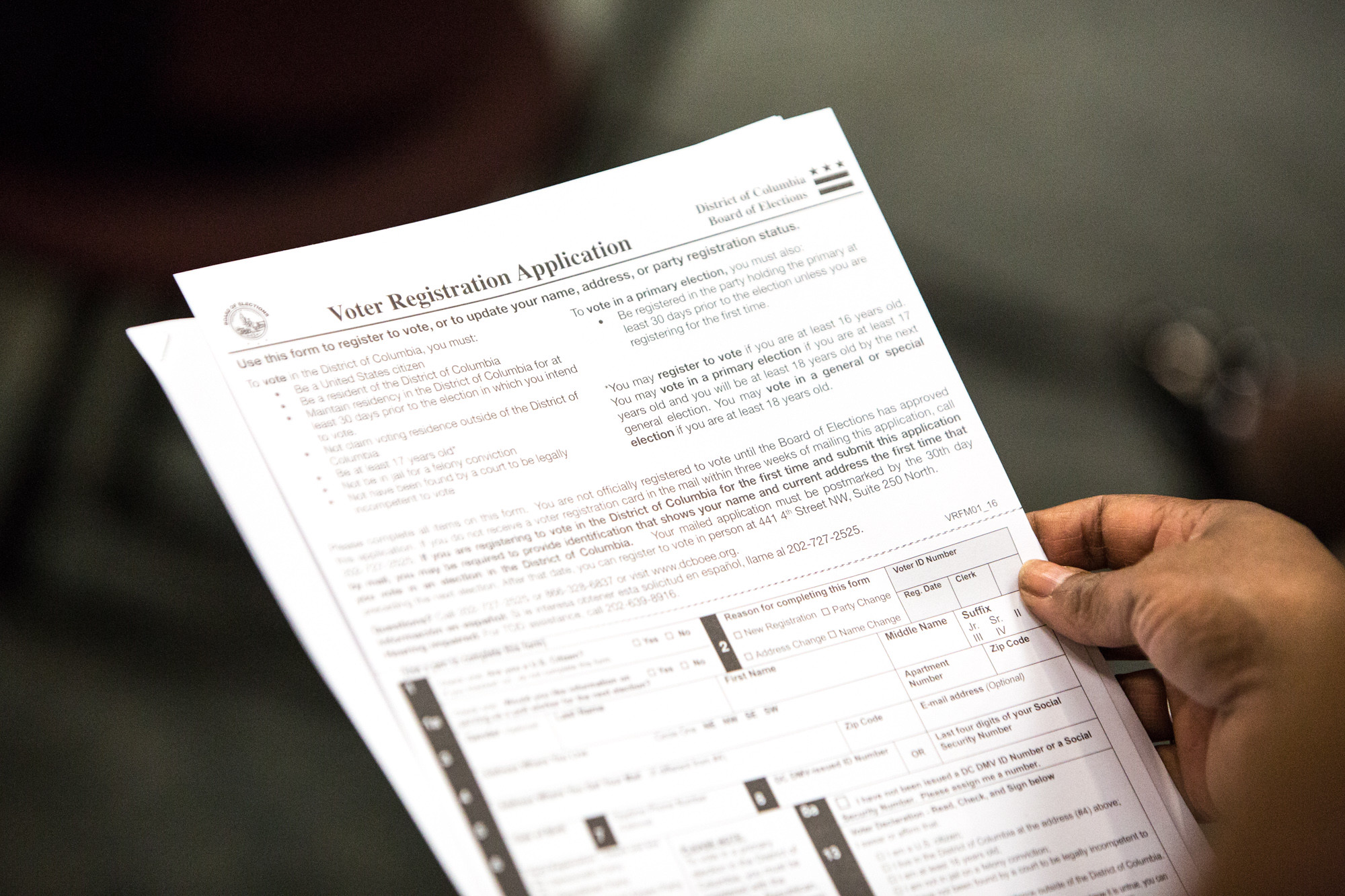



Now loading...